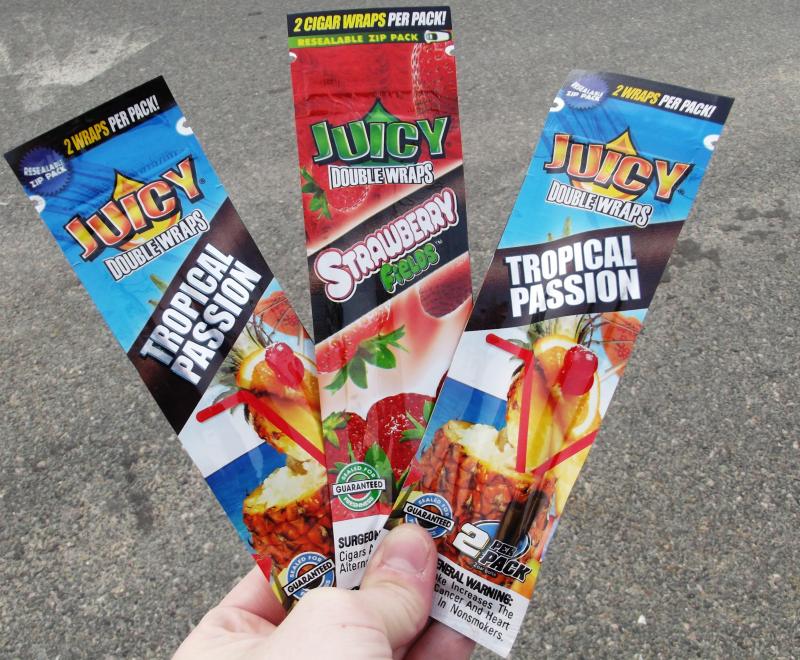New smoking regulations target secondhand smoke, blunt wraps, and rolling machines
If you've ever been enjoying a clam plate on the porch of a Wareham restaurant, only to have the deep fried ocean treat ruined by the acrid odor of secondhand smoke... rejoice!
In an effort to protect workers from cigarette smoke, the Board of Health has banned smoking in the outdoor seating areas of restaurants where the waitstaff serves customers.
"They have a right not to be subjected to secondhand smoke," said Wareham Health Agent Robert Ethier.
"My board met with representatives from the Department of Public Health, and they told us that's what the state" recommends, Ethier explained.
The measure is one of three new smoking regulations implemented by the Board of Health earlier this month, after the board met with representatives from the Cape Cod Regional Tobacco Program, which is funded by the state Department of Public Health, to discuss what could be done to update Wareham's tobacco regulations.
The other new regulations prohibit "non-residential" roll-your-own cigarette machines and "blunt wraps." The latter, labeled as containers to be filled with tobacco, are marketed to look a bit like kiddie snacks to a generation that is more likely to fill them with marijauna.
Speaking of the new restaurant regulation, Cape Cod Regional Tobacco Program Director Bob Collett noted that "many towns have adopted this, including Bourne, all Martha's Vineyard towns, and Provincetown. The intent is to protect workers."
One place that is exempt from this no-smoking regulation is Brennan's Smoke Shop on Main Street.
As a smoke shop, "they're specially licensed by the state," so smoking is allowed inside, according to Collett.
Roll-your-own machines are used to pack loose tobacco into filtered cigarette shells. They are popular among customers who purchase cut-rate tobacco.
The ban on large roll-your-own machines should have little to no effect on local businesses, as there aren't any businesses in Wareham that have one.
The 2012 Federal Transportation Act recategorize any store that featured a roll-your-own machine as a "tobacco manufacturer." This effectively put gas stations and other tobacco-sellers housing a roll-your-own machine in the same category as tobacco goliaths such as Phillip Morris.
Under the federal regulation, any business that wishes to keep one of the machines in-store is subject to an annual $25,000 licensing fee.
"The prohibition of the commercial rolling machines is a pro-business move in that it protects other businesses," said Collett. "Those that do have a machine can roll and sell the equivalent of a carton for $25-$30," compared to about $80 for a carton of name brand cigarettes.
Collett said that there's still a possibility that the federal law could be overturned, so "it's advisable for the local Board of Health to enforce" a ban that mimics the law.
Since the regulation applies only to "non-residential machines," anyone can still have a device to roll his or her own cigarettes in the privacy of the home.
Blunt wraps are defined in the Board of Health's regulations as "any tobacco product manufactured or packaged as a wrap, or as a hollow tube made wholly or in part from tobacco, that is designed to be filled by the consumer with loose tobacco or other fillers."
While the regulations pertain to tobacco, it's the "other fillers" that raised public health concerns.
"The Department of Public Health and the local Board of Health are concerned that blunts promote the use of marijuana," said Ethier.
This concern was echoed by Collett: "Typically, people roll marijuana in them [blunts]."
Ethier and Collett both expressed concern that blunt wrap companies blatantly market to young people.
"The kids are targeted with those products," said Ethier. "They make them different flavors, and the packaging can be suggestive."
Collett echoed that sentiment saying, "They look like Fruit Roll-ups on the shelf."
The Board of Health will be making visits to local merchants in the weeks ahead to ensure compliance with the new regulations.















